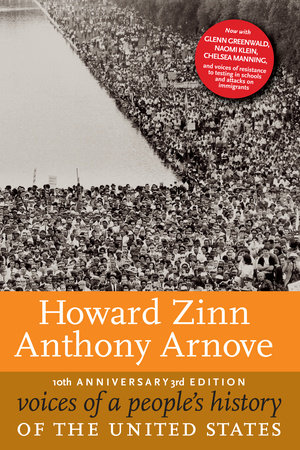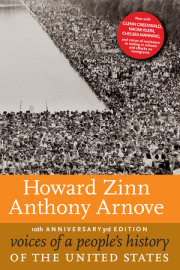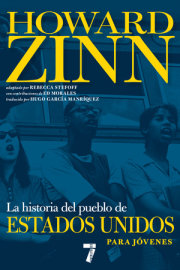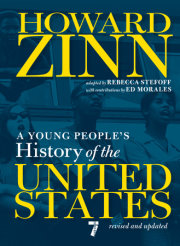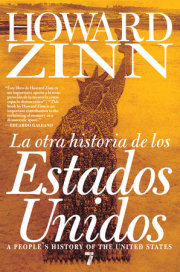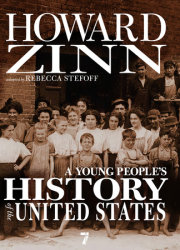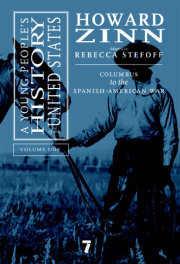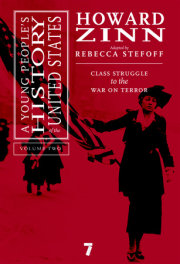Table of Contents
ACKNOWLEDGMENTS
INTRODUCTION
CHAPTER 1: COLUMBUS AND LAS CASAS
The Diario of Christopher Columbus (October 11–15, 1492)
Bartolomé de Las Casas, Two Readings on the Legacy of Columbus (1542 and 1550)
Bartolomé de Las Casas, The Devastation of the Indies: A Brief Account (1542)
Bartolomé de Las Casas, In Defense of the Indians (1550)
Eduardo Galeano, Memory of Fire (1982)
CHAPTER 2: THE FIRST SLAVES
Three Documents on Slave Revolts (1720 to 1793)
Anonymous Letter to Mr. Boone in London (June 24, 1720)
Letter from Petersburg, Virginia (May 17, 1792)
Secret Keeper Richmond (Unknown) to Secret Keeper Norfolk (Unknown) (1793)
Four Petitions Against Slavery (1773 to 1777)
“Felix” (Unknown) Slave Petition for Freedom (January 6, 1773)
Peter Bestes and Other Slaves Petition for Freedom (April 20, 1773)
“Petition of a Grate Number of Blackes” to Thomas Gage (May 25, 1774)
“Petition of a Great Number of Negroes” to the Massachusetts House of Representatives (January 13, 1777)
Benjamin Banneker, Letter to Thomas Jefferson (August 19, 1791)
CHAPTER 3: SERVITUDE AND REBELLION
Richard Frethorne on Indentured Servitude (March 20–April 3, 1623)
A True Narrative of the Rise, Progresse, and Cessation of the Late Rebellion in Virginia, Most Humbly and Impartially Reported by His Majestyes Commissioners Appointed to Enquire into the Affaires of the Said Colony (1677)
Proclamation of the New Hampshire Legislature on the Mast Tree Riot (1734)
Letter Written by William Shirley to the Lords of Trade about the Knowles Riot (December 1, 1747)
Gottlieb Mittelberger, Gottlieb Mittelberger’s Journey to Pennsylvania in the Year 1750 and Return to Germany In the Year 1754 (1754)
Account of the New York Tenant Riots (July 14, 1766)
CHAPTER 4: PREPARING THE REVOLUTION
Thomas Hutchinson Recounts the Reaction to the Stamp Act in Boston (1765)
Samuel Drowne’s Testimony on the Boston Massacre (March 16, 1770)
George Hewes Recalls the Boston Tea Party (1834)
New York Mechanics Declaration of Independence (May 29, 1776)
Thomas Paine, Common Sense (1776)
CHAPTER 5: HALF A REVOLUTION
Joseph Clarke’s Letter about the Rebellion in Springfield (August 30, 1774)
Joseph Plumb Martin, A Narrative of Some of the Adventures, Dangers and Sufferings of a Revolutionary Soldier (1830)
Samuel Dewees Recounts the Suppression of Insubordination in the Continental Army after the Mutinies of 1781 (1844)
Henry Knox, Letter to George Washington (October 23, 1786)
“Publius” (James Madison), Federalist No. 10 (November 23, 1787)
CHAPTER 6: THE EARLY WOMEN’S MOVEMENT
Maria Stewart, “An Address Delivered at the African Masonic Hall, Boston” (February 27, 1833)
Angelina Grimké Weld’s Speech at Pennsylvania Hall (May 17, 1838)
Harriet Hanson Robinson, “Characteristics of the Early Factory Girls” (1898)
S. Margaret Fuller Ossoli, Woman in the Nineteenth Century (1845)
Elizabeth Cady Stanton, “Declaration of Sentiments and Resolutions,” Seneca Falls Convention (July 19, 1848)
Sojourner Truth, “Ain’t I a Woman?” (1851
Marriage Protest of Lucy Stone and Henry B. Blackwell (May 1, 1855)
Susan B. Anthony Addresses Judge Ward Hunt in The United States of America v. Susan B. Anthony (June 19, 1873)
CHAPTER 7: INDIAN REMOVAL
Tecumseh’s Speech to the Osages (Winter 1811–12)
Two Documents on the Cherokee Removal (1829 and 1830)
Cherokee Nation, “Memorial of the Cherokee Indians” (December 1829)
Lewis Ross et al., Address of the Committee and Council of the Cherokee Nation, in General Council Convened, to the People of the United States (July 17, 1830)
Black Hawk’s Surrender Speech (1832)
John G. Burnett, “The Cherokee Removal Through the Eyes of a Private Soldier” (December 11, 1890)
Two Statements by Chief Joseph of the Nez Percé (1877 and 1879)
Chief Joseph’s Surrender (October 5, 1877)
Chief Joseph Recounts His Trip to Washington, D.C. (1879)
Black Elk, “The End of the Dream” (1932)
CHAPTER 8: THE WAR ON MEXICO
The Diary of Colonel Ethan Allen Hitchcock (June 30, 1845–March 26, 1846)
Miguel Barragan, Dispatch on Texas Colonists (October 31, 1835)
Juan Soto, Desertion Handbill (June 6, 1847)
Frederick Douglass, Address to the New England Convention (May 31, 1849)
North Star Editorial, “The War with Mexico” (January 21, 1848)
Henry David Thoreau, Civil Disobedience (1849)
CHAPTER 9: SLAVERY AND DEFIANCE
David Walker’s Appeal (1830)
Harriet A. Jacobs, Incidents in the Life of a Slave Girl: Written by Herself (1861)
James Norcom’s Runaway Slave Newspaper Advertisement for Harriet Jacobs (June 30, 1835)
James R. Bradley, Letter to Lydia Maria Child (June 3, 1834)
Reverend Theodore Parker, Speech of Theodore Parker at the Faneuil Hall Meeting (May 26, 1854)
Two Letters from Slaves to Their Former Masters (1844 to 1860)
Henry Bibb, Letter to William Gatewood (March 23, 1844)
Jermain Wesley Loguen, Letter to Sarah Logue (March 28, 1860)
Frederick Douglass, “The Meaning of July Fourth for the Negro” (July 5, 1852)
John Brown, “John Brown’s Last Speech” (November 2, 1859)
Osborne P. Anderson, A Voice from Harper’s Ferry (1861)
Martin Delany’s Advice to Former Slaves (July 23, 1865)
Henry McNeal Turner, “On the Eligibility of Colored Members to Seats in the Georgia Legislature” (September 3, 1868)
CHAPTER 10: CIVIL WAR AND CLASS CONFLICT
An Eyewitness Account of the Flour Riot in New York (February 1837)
Hinton Rowan Helper, The Impending Crisis of the South (1857)
“Mechanic” (Unknown), “Voting by Classes” (October 13, 1863)
Joel Tyler Headley, The Great Riots of New York (1873)
Four Documents on Disaffection in the South During the Civil War (1864 to 1865)
Report on a Bread Riot in Savannah, Georgia (April 1864)
“Exempt” (Unknown), “To Go, Or Not to Go” (June 28, 1864)
O.G.G. (Unknown), Letter to the Editor (February 17, 1865)
Columbus Sun, “The Class That Suffer” (February 17, 1865)
J. A. Dacus, Annals of the Great Strikes in the United States (1877)
CHAPTER 11: STRIKERS AND POPULISTS IN THE GILDED AGE
Henry George, “The Crime of Poverty” (April 1, 1885)
August Spies, “Address of August Spies” (October 7, 1886)
Anonymous, “Red-Handed Murder: Negroes Wantonly Killed at Thibodaux, La.” (November 26, 1887)
Reverend Ernest Lyon et al., Open Letter from the New Orleans Mass Meeting (August 22, 1888)
Two Speeches by Mary Elizabeth Lease (circa 1890)
“Wall Street Owns the Country” (circa 1890)
Speech to the Women’s Christian Temperance Union (1890)
The Omaha Platform of the People’s Party of America (1892)
Reverend J. L. Moore on the Colored Farmers’ Alliance (March 7, 1891)
Ida B. Wells-Barnett, “Lynch Law” (1893)
Statement from the Pullman Strikers (June 15, 1894)
Edward Bellamy, Looking Backward: 2000–1887 (1888)
CHAPTER 12: THE EXPANSION OF THE EMPIRE
Calixto Garcia’s Letter to General William R. Shafter (July 17, 1898)
Three Documents on African-American Opposition to Empire (1898 to 1899)
Lewis H. Douglass on Black Opposition to McKinley (November 17, 1899
Missionary Department of the Atlanta, Georgia, A.M.E. Church, “The Negro Should Not Enter the Army” (May 1, 1899)
I. D. Barnett et al., Open Letter to President McKinley by Colored People of Massachusetts (October 3, 1899)
Samuel Clemens, “Comments on the Moro Massacre” (March 12, 1906)
Smedley D. Butler, War Is a Racket (1935)
CHAPTER 13: SOCIALISTS AND WOBBLIES
Mother Jones, “Agitation: The Greatest Factor for Progress” (March 24, 1903)
Upton Sinclair, The Jungle (1906)
W. E. B. Du Bois, The Souls of Black Folk (1903)
Emma Goldman, “Patriotism: A Menace to Liberty” (1908)
“Proclamation of the Striking Textile Workers of Lawrence” (1912)
Arturo Giovannitti’s Address to the Jury (November 23, 1912)
Woody Guthrie, “Ludlow Massacre” (1946)
Julia May Courtney, “Remember Ludlow!” (May 1914)
Joe Hill, “My Last Will” (November 18, 1915)
CHAPTER 14: PROTESTING THE FIRST WORLD WAR
Helen Keller, “Strike Against War” (January 5, 1916)
John Reed, “Whose War?” (April 1917)
“Why the IWW Is Not Patriotic to the United States” (1918)
Emma Goldman, Address to the Jury in U.S. v. Emma Goldman and Alexander Berkman (July 9, 1917)
Two Antiwar Speeches by Eugene Debs (1918)
“The Canton, Ohio, Speech” (June 16, 1918)
Statement to the Court (September 18, 1918)
Randolph Bourne, “The State” (1918)
e. e. cummings, “i sing of Olaf glad and big” (1931)
John Dos Passos, “The Body of an American” (1932)
Dalton Trumbo, Johnny Got His Gun (1939)
CHAPTER 15: FROM THE JAZZ AGE TO THE
UPRISINGS OF THE 1930S
F. Scott Fitzgerald, “Echoes of the Jazz Age” (1931)
Yip Harburg, “Brother, Can You Spare a Dime?” (1932)
Paul Y. Anderson, “Tear-Gas, Bayonets, and Votes” (August 17, 1932)
Mary Licht, “I Remember the Scottsboro Defense” (February 15, 1997)
Ned Cobb (“Nate Shaw”), All God’s Dangers (1969)
Billie Holiday, “Strange Fruit” (1937)
Two Poems by Langston Hughes (1934 and 1940)
“Ballad of Roosevelt” (1934)
“Ballad of the Landlord” (1940)
Bartolomeo Vanzetti, Speech to the Court (April 9, 1927)
Vicky Starr (“Stella Nowicki”), “Back of the Yards” (1973)
Sylvia Woods, “You Have to Fight for Freedom” (1973)
Rose Chernin on Organizing the Unemployed in the Bronx in the 1930s (1949)
Genora (Johnson) Dollinger, Striking Flint: Genora (Johnson) Dollinger Remembers the 1936–37 GM Sit-Down Strike (February 1995)
John Steinbeck, The Grapes of Wrath (1939)
Woody Guthrie, “This Land Is Your Land” (February 1940)
CHAPTER 16: WORLD WAR II AND MCCARTHYISM
Paul Fussell, “‘Precision Bombing Will Win the War’” (1989)
Yuri Kochiyama, “Then Came the War” (1991)
Yamaoka Michiko, “Eight Hundred Meters from the Hypocenter” (1992)
United States Strategic Bombing Survey, Summary Report (Pacific War) (July 1, 1946)
Admiral Gene Larocque Speaks to Studs Terkel About “The Good War” (1985)
Kurt Vonnegut, Slaughterhouse-Five (1969)
Paul Robeson’s Unread Statement before the House Committee on Un-American Activities (June 12, 1956)
Peter Seeger, “Thou Shall Not Sing” (1989)
I. F. Stone, “But It’s Not Just Joe McCarthy” (March 15, 1954)
The Final Letter from Ethel and Julius Rosenberg to Their Children (June 19, 1953)
CHAPTER 17: THE BLACK UPSURGE AGAINST RACIAL SEGREGATION
Richard Wright, 12 Million Black Voices (1941)
Langston Hughes, “Montage of a Dream Deferred” (1951)
Anne Moody, Coming of Age in Mississippi (1968)
John Lewis, Original Text of Speech to Be Delivered at the Lincoln Memorial (August 28, 1963)
Malcolm X, “Message to the Grass Roots” (November 10, 1963)
Martha Honey, Letter from Mississippi Freedom Summer (August 9, 1964)
Testimony of Fannie Lou Hamer (August 22, 1964)
Testimony of Rita L. Schwerner (1964)
Alice Walker, “Once” (1968)
Sandra A. West, “Riot!—A Negro Resident’s Story” (July 24, 1967)
Martin Luther King, Jr., “Where Do We Go from Here?” (August 16, 1967)
CHAPTER 18: VIETNAM AND BEYOND: THE HISTORIC RESISTANCE
Mississippi Freedom Democratic Party, McComb, Mississippi, Petition Against the War in Vietnam (July 28, 1965)
Martin Luther King, Jr., “Beyond Vietnam” (April 4, 1967)
Student Nonviolent Coordinating Committee, Position Paper on Vietnam (January 6, 1966)
Bob Dylan, “Masters of War” (1963)
Muhammad Ali Speaks Out Against the Vietnam War (1966)
Jonathan Schell, The Village of Ben Suc (1967)
Larry Colburn, “They Were Butchering People” (2003)
Haywood T. “The Kid” Kirkland, from Bloods: An Oral History of the Vietnam War by Black Veterans (1984)
Loung Ung, “People Just Disappeared and You Didn’t Say Anything” (2003)
Tim O’Brien, “The Man I Killed” (1990)
Maria Herrera-Sobek, Two Poems on Vietnam (1999)
Daniel Ellsberg, Secrets: A Memoir of Vietnam and the Pentagon Papers (2003)
CHAPTER 19: WOMEN, GAYS, AND OTHER VOICES OF RESISTANCE
Allen Ginsberg, “America” (January 17, 1956)
Martin Duberman, Stonewall (1993)
Wamsutta (Frank B.) James, Suppressed Speech on the 350th Anniversary of the Pilgrim’s Landing at Plymouth Rock (September 10, 1970)
Adrienne Rich, Of Woman Born (1977)
Abbey Lincoln, “Who Will Revere the Black Woman?” (September 1966)
Susan Brownmiller, “Abortion Is a Woman’s Right” (1999)
Assata Shakur (Joanne Chesimard), “Women in Prison: How We Are” (April 1978)
Kathleen Neal Cleaver, “Women, Power, and Revolution” (October 16, 1998)
CHAPTER 20: LOSING CONTROL IN THE 1970S
Howard Zinn, “The Problem Is Civil Obedience” (November 1970)
George Jackson, Soledad Brother (1970)
Bob Dylan, “George Jackson” (1971)
Angela Davis, “Political Prisoners, Prisons, and Black Liberation” (1970)
Two Voices of the Attica Uprising (1971 and 2000)
Elliott James (“L. D.”) Barkley (September 9, 1971)
Interview with Frank “Big Black” Smith (2000)
Leonard Peltier on the Trail of Broken Treaties Protest (1999)
Select Committee to Study Governmental Operations with Respect to Intelligence Activities, Covert Action in Chile 1963–1973 (December 18, 1975)
Noam Chomsky, “COINTELPRO: What the (Deleted) Was It?” (March 12, 1978)
CHAPTER 21: THE CARTER–REAGAN–BUSH CONSENSUS
Marian Wright Edelman, Commencement Address at Milton Academy (June 10, 1983)
César Chávez, Address to the Commonwealth Club of California (November 9, 1984)
Testimony of Ismael Guadalupe Ortiz on Vieques, Puerto Rico (October 2, 1979)
Local P-9 Strikers and Supporters on the 1985–1986 Meatpacking Strike against the Hormel Company in Austin, Minnesota (1991)
Douglas A. Fraser, Resignation Letter to the Labor–Management Group (July 19, 1978)
Vito Russo, “Why We Fight” (1988)
Abbie Hoffman, “Closing Argument” (April 15, 1987)
Public Enemy, “Fight the Power” (1990)
CHAPTER 22: PANAMA, THE 1991 GULF WAR, AND THE WAR AT HOME
Alex Molnar, “If My Marine Son Is Killed . . .” (August 23, 1990)
Eqbal Ahmad, “Roots of the Gulf Crisis” (November 17, 1990)
June Jordan Speaks Out Against the 1991 Gulf War (February 21, 1991)
Yolanda Huet-Vaughn, Statement Refusing to Serve in the 1991 Gulf War (January 9, 1991)
Interview with Civilian Worker at the Río Hato Military Base in Panama City (February 23, 1990)
Mike Davis, “In L.A., Burning All Illusions” (June 1, 1992)
Mumia Abu-Jamal, All Things Censored (2001)
CHAPTER 23: CHALLENGING BILL CLINTON
Bruce Springsteen, The Ghost of Tom Joad (1995)
Lorell Patterson on the “War Zone” Strikes in Decatur, Illinois (June 1995)
Winona LaDuke, Acceptance Speech for the Green Party’s Nomination for Vice President of the United States of America (August 29, 1996)
Two Open Letters of Protest to the Clinton Administration Alice Walker, Letter to President Bill Clinton (March 13, 1996)
Adrienne Rich, Letter to Jane Alexander Refusing the National Medal for the Arts (July 3, 1997)
Rania Masri, “How Many More Must Die?” (September 17, 2000)
Roni Krouzman, “WTO: The Battle in Seattle: An Eyewitness Account” (December 6, 1999)
Anita Cameron, “And the Steps Came Tumbling Down—ADAPT’s Battle with the HBA” (2000)
Elizabeth (“Betita”) Martínez, “‘Be Down with the Brown!’” (1998)
Walter Mosley, Workin’ on the Chain Gang (2000)
Julia Butterfly Hill, “Surviving the Storm: Lessons from Nature” (2001)
CHAPTER 24: BUSH II, OBAMA, AND THE “WAR ON TERROR”
Michael Moore, “The Presidency—Just Another Perk” (November 14, 2000)
Orlando Rodriguez and Phyllis Rodriguez, “Not In Our Son’s Name” (September 15, 2001)
Rita Lasar, “To Avoid Another September 11, U.S. Must Join the World” (September 5, 2002)
Monami Maulik, “Organizing in Our Communities Post–September 11th” (2001)
International Brotherhood of Teamsters Local 705, “Resolution Against the War” (October 18, 2002
Rachel Corrie, Letter from Palestine (February 7, 2003)
Danny Glover, Speech During the World Day of Protest Against the War (February 15, 2003)
Amy Goodman, “Independent Media in a Time of War” (2003)
Tim Predmore, “How Many More Must Die?” (August 24, 2003)
Maritza Castillo et al., Open Letter to Colonel, U.S. Army (Ret.) Michael G. Jones (September 12, 2003)
Kurt Vonnegut, “Cold Turkey” (May 31, 2004)
Glenn Greenwald, Speech to the Socialism 2013 Conference (June 27, 2013)
Chelsea Manning, “‘Sometimes You Have to Pay a Heavy Price to Live in a Free Society’” (August 21, 2013)
CHAPTER 25: RISING RESISTANCE IN THE 21ST CENTURY
Camilo Mejía, “‘I Pledge My Allegiance to the Poor and Oppressed’” (July 3, 2005)
Cindy Sheehan, “‘It’s Time the Antiwar Choir Started Singing’” (August 5, 2005)
Kevin Tillman, “After Pat’s Birthday” (October 19, 2006)
Evann Orleck-Jetter, Statement on Marriage Equality (March 18, 2009)
Gustavo Madrigal-Piña, “Undocumented and Unafraid” (August 22, 2011)
Roberto Meneses Marquez, “A Day Laborer” (April 30, 2013)
Naomi Klein, “Occupy Wall Street: The Most Important Thing in the World Now” (October 6, 2011)
Phillip Agnew, “#OurMarch” (August 28, 2013)
Kirstin Roberts, “We Stood Up to the Bullies” (October 9, 2012)
Amber Kudla, “518-455-4767” (June 23, 2013)
Jesse Hagopian, “After We Scrapped the MAP” (January 30, 2014)
Michelle Farber, “We All Have to Be Brave” (May 14, 2014)
EPILOGUE: Patti Smith, “People Have the Power” (1988)
NOTES
CREDITS AND PERMISSIONS
INDEX
ABOUT THE AUTHORS
ABOUT SEVEN STORIES PRESS
OTHER HOWARD ZINN BOOKS AVAILABLE
FROM SEVEN STORIES PRESS

